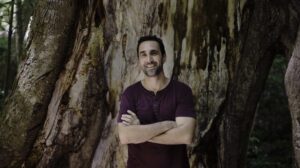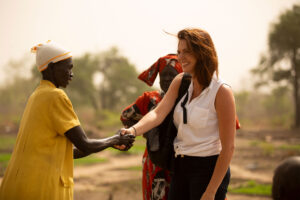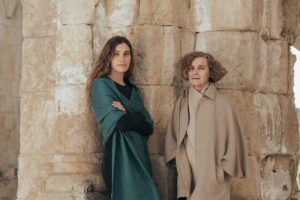
Masaya Co — Sustainable Furniture from Seed to Seat
MasayaCo is a sustainable furniture company on a mission to combat climate change through reforestation & sustainable design.
USA
Mood of Living October 19, 2017
After a dynamic career in media, Susan Easton founded From the Road, a retail brand specializing in fine handmade textile accessories and home goods. Founded in 2011, From the Road combines the aesthetic expertise with the love of travel and fashion from a sustainable designer. Easton collaborates with master-level artisans in remote locations to create beautiful products using techniques which were once on the verge of disappearing. From the Road’s pieces are unique not only because of their luxurious textures and earthy, minimalist aesthetic, but also because of the rich history behind their construction. By blending time-honored crafting methods with a modern, international approach to artistry, Easton has built a brand that connects consumers and artisans on a global scale. We spoke with Easton about her travels, inner peace, and the importance of modern technology in preserving tradition.
Mood of Living: What is your hometown?
Susan Easton: I grew up in Cleveland, Ohio.
MoL: Where did you go to school?
S.E: I went to the Cleveland Institute of Art for a formal education, but consider travel my real teacher.
MoL: What was your profession before you started From the Road?
S.E: I experienced a few different “flavors” of design before starting FROM THE ROAD. I was a creative director for many years in both the print and interactive space. I was responsible for the design of large media projects like Hulu and New York Times Online while at Razorfish. I’ve also done the brand strategy and design for a number of luxury boutique hotels in remote locations in Africa and Asia when I owned my own studio.
Strangely enough, these different design roles laid the foundation for what I do now. The digital work helped me to learn how to use technology to story tell, and the hotel branding opened up my eyes to beautiful artistry available in different parts of the world. To bring local influences into my hotel projects, I started commissioning work from artisans for everything from turndown service items to room décor.
Even in my personal life when I traveled on vacation, I would collaborate with artisans. I enjoyed visiting the local markets to see what each culture had in the way of traditional techniques. Inevitably I would find something that I loved, but would want to make a few changes. We would work together to create something new and I would bring it back home. When friends and family would inquire about a piece of jewelry that I was wearing or a throw on my couch, my answer would always be, “I was in Peru or Kenya or (fill in the blank) and had it made.” Eventually, I had a group that wanted me to make for them whatever I was making for myself.
Inspired by my time exploring up north in Kenya where I had the opportunity to visit a number of bomas (traditional African homesteads which housed both people and livestock), I became intrigued with the irregular oval shape of the compounds dotted by circular homes within. They became the basis for the design of these unisex bracelets–hand carved from cow bone and tied with locally sourced leather. Without realizing it, I had been in training for years, and so when I entered this business, everything sort of magically fell into place.
Artisans from Nepal.
MoL: What point would you say you made the shift from working as a creative director towards working for From the Road full time?
S.E: I decided that I wanted to find a profession that I thought would make a difference, but wasn’t sure what that was. I left my creative director job, started traveling, and ended up down in South America. I found these artisans that would hand-weave alpaca blankets and finish them in a really interesting way. They took dried thistles, turned them into brushes, and then carded each woven blanket. The process really softened the hand feel. I decided to see if we could push the technique, so I had them over-brush it, and what resulted was a really “furry,” gorgeous piece. I brought the throw back to New York and showed it to someone who worked with Donna Karan at Urban Zen. He was immediately drawn to it and asked if he could hold onto it for a little while. He called me back and said that Donna really loved it, and would like to place an order. The way he put it was that she wanted to carry the line, and I didn’t really have a line, so I went back down to South America and made my first collection. That was how it all started.
Since then, I’ve worked in a number of places including Uzbekistan, Kyrgyzstan, Kenya, Ecuador, Peru, Mexico and Nepal. The mission is to connect with artisans around the world who are using techniques that are close to disappearing. I started making all sorts of accessories for self and home. In Peru, we were making textiles. In Kenya, we were making clutches from fish-leather. In Ecuador, we were making hand crafted jewelry from bone, leather, silver and gold. Once I got to Nepal, I became infatuated with reinvigorating the Himalayan hand weaving traditions there.
I wasn’t going to a country and asking the artisans to produce a design. Instead, I spent months living and working there. I wanted to learn about their culture and their techniques. From this background, I was able to find my partners. We jointly developed designs that I think neither one of us could have done on our own. They were true collaborations—a melding of cultures.
The result and the inspiration for From the Road’s Padra Oversized Wrap made with natural dyes.
MoL: How do you come up with a balance between the traditional and the contemporary?
S.E: It’s all really intuitive. My aesthetic is based on a minimal design approach with organic, soft aspects. I pair that with what each artisan group has to offer. Additionally, the design is informed by what I experience in my day to day while living and working in each of these places.
For example, when I’m in Nepal, I love to go up in the mountain villages to research traditional weaving and stitching techniques. My trip to Lower Mustang inspired our Padra scarves, wraps, and throws. Using handspun cashmere, they are hand-woven in small strips and stitched together like they do in the villages. We leave the edges uneven, which is a modern interpretation of an old finishing technique.
Easton visited Nepal to research traditional weaving techniques.
MoL: Are there specific techniques or materials that you focus on and why?
S.E: I’m infatuated with preserving hand-spinning fiber techniques. This heritage art form is in serious decline, so I am working with a weaving group that has a women’s “spinning circle” where the village elders are literally training the next generation through our production. It feels great to know that each order I place with them has a direct impact on reviving this beautiful process.
On the materials front, we work a lot with a rare fiber called Himalayan Khullu. It has become a signature for us. Highly sought after, it is the very soft interior neck and underbelly “down” collected once a year by nomadic herdsman from their high-altitude yaks. Revered for its warmth, softness and strength, Khullu has recently gained recognition for its environmentally light footprint. Once transported to our workshop in the valley, the women’s spinning circle turns the fiber into rustic yarn, and then master weavers create the heirloom pieces using a traditional foot pedal loom.
Weaving techniques and Khullu fabric from the Himalayas are staples of From the Road’s craftsmanship.
MoL: On your website, you talk a lot about being inspired by “off-the-grid travel” and the artisans you meet there. What would you say separates that from more traditional, mainstream types of travel?
S.E: I love being immersed in older, wiser cultures that are grounded in ancient traditions. If I’m traveling in Japan and I go to Tokyo, I’m going to get one experience. If I go to the countryside to visit a shiburi dyeing specialist, I have a very different type of experience. I get to see how this master artisan lives and works—how he engages in an art form that has been passed down to him through his family lineage.
MoL: On that note, where do you go to find peace of mind?
S.E: I think peace of mind is actually within. I have a meditation practice that helps me find peace of mind, wherever I am. I find when I slow down, that’s when I’m open to being more inspired and to learning about other people’s cultures. I like off-the-grid travel because in those places, time is a little bit different.
MoL: That’s really interesting because there’s so much focus on seeking external peace, when it’s really important to find your own inner peace of mind and spirit.
S.E: When I have inner peace, I attract that. Since I’ve started my business I’ve met the most amazing people in big cities as well as remote villages, and I think it’s partially because no matter where I am, I feel grounded enough to open up and genuinely connect with others.
Easton traveled to Peru to document the art of hand-spinning yarn from artisans there, such as Josephina.
MoL: Who would you say has been the most influential figure in your life and mission?
S.E: I can’t pinpoint it down to one person. I am very grateful to Donna Karan for all of her and Urban Zen’s support. I am really thankful for Simone Cipriani. He’s the head of the UN’s fashion project, the Ethical Fashion Initiative. We’re partnered with them, and his guidance has been so helpful for me. On a daily basis, the artisans that I have the honor to work with are a continual source of inspiration for me. Lastly, my retailer partners are so crucial to the business. They are the ones that share the stories as they connect their clientele with our textiles. I do in-depth sales clinics so everyone has the knowledge of what goes into making each piece. We show photos and videos of the places, people, and process to bring everything to life. I can say that something is handspun and then handwoven, but until they see it with their own eyes, it is still theoretical and abstract.
MoL: Would you say that technology also can play a role in preserving tradition?
S.E: Yes. It’s funny, because when I left my creative director role in the media world, I thought I was putting that behind me so I could do something much more impactful, but what I found is that media is an amazing way to tell stories, and to connect people. I find myself more engaged in digital than I ever have been, and I’m using it in a way that tells stories and helps connect consumers to the artisans that make their work. I’m a tech-positive person.
MoL: What future plans do you have for From the Road?
S.E: Short-term is really about giving the artisans orders, so that we can keep them working and their art forms thriving. In Nepal, hand spinning and hand weaving are in total decline, so every time we get an order in, I know that we are making a tangible impact. I personally know many of the ladies who spin the yarn and the weavers who craft the pieces, and watching them make a livelihood doing what they love gives me a lot of personal satisfaction.
Long-term is about further preserving and invigorating the art forms. I’m excited that our orders actually are the impetus in helping to train the next generation of artisans. We currently use natural dyes for some of the pieces. Our Nepali partners had not done this type of traditional dyeing for five years because they didn’t have a market for it. Since we started requesting this service, their master dyer had to train three new people. So through our orders, I feel like we are directly impacting cultural preservation.
In addition to preserving the techniques, I’m also looking to understand what will most benefit our artisan partners. With the guidance of EFI, we will be doing audits in Nepal to see how to achieve more and more supportive environments. I’m also looking into our supply chain. We are working to establish direct collaborations with herders in Tibet, Mongolia, and Afghanistan.
The process of spinning and dyeing the yarn.
MoL: What does quality of life mean to you?
S.E: Doing what you love.
MoL: What is your favorite hobby?
S.E: I love aerial photography. There is something truly exhilarating about going up in an open plane and shooting the landscape below. The earth makes it’s own ever changing abstract paintings and I enjoy being able to document each of those moments.
MoL: What scent makes you happy?
S.E: A mix of frankincense and lavender.
Easton and photography from her African flyover.
MoL: What music inspires you?
S.E: Songs by Kenyan-born singer Ayub Ogada.
MoL: What is your favorite quote?
S.E: “In the tapestry of life, we’re all connected. Each one of us is a gift to those around us helping each other be who we are, weaving a perfect picture together.” — Anita Moorjani.
MoL: What advice can you give anyone interested in starting his or her own business?
S.E: Follow your heart. It never steers you wrong.
Photography courtesy of Susan Easton

MasayaCo is a sustainable furniture company on a mission to combat climate change through reforestation & sustainable design.

Founder Treana Peake, supports artisan partnerships and funds development work through the Obakki Foundation.

ÁBBATTE creates handmade textiles in Spain on the grounds of a 13th -century Cistercian monastery in the town of Segovia.